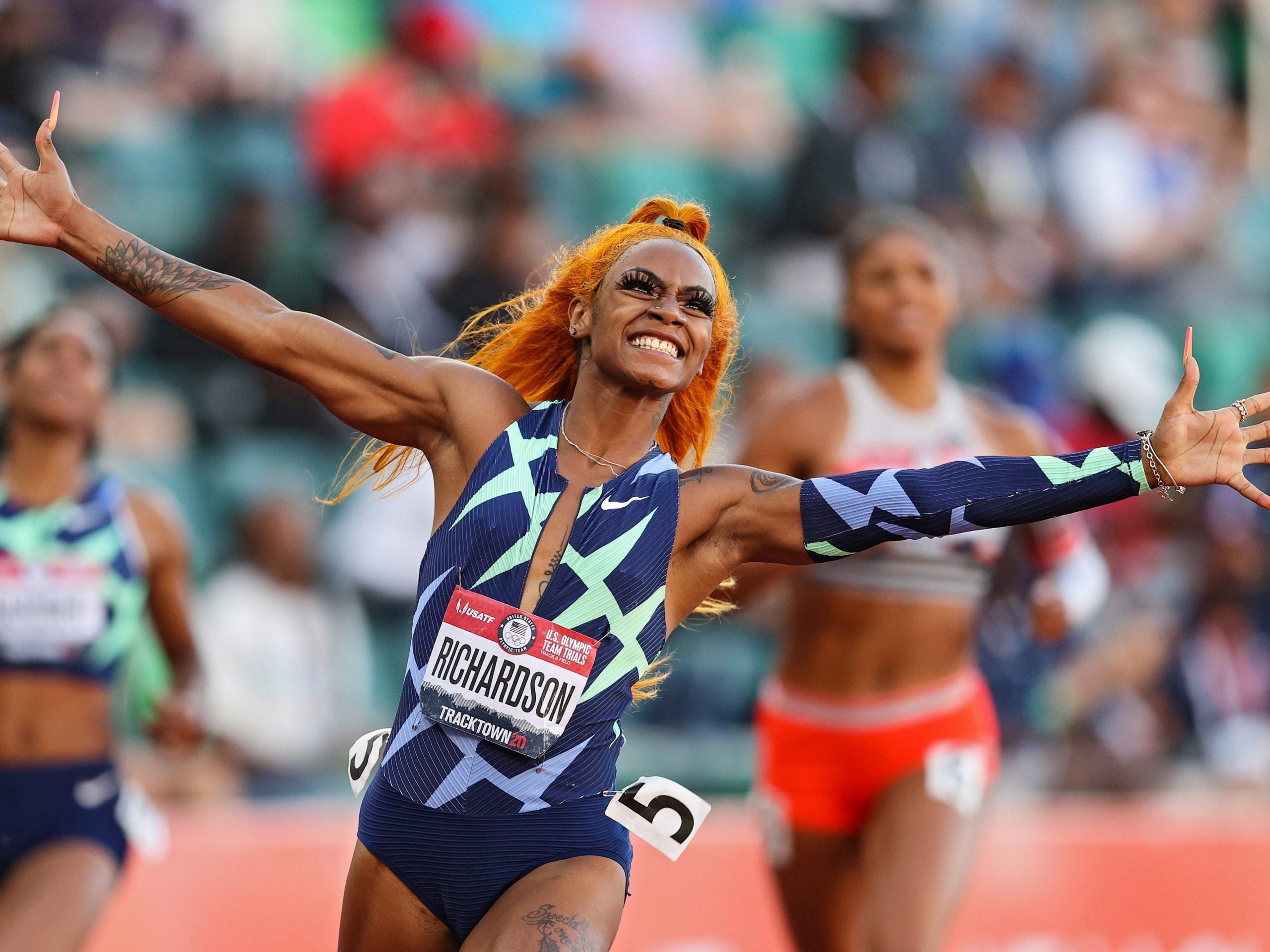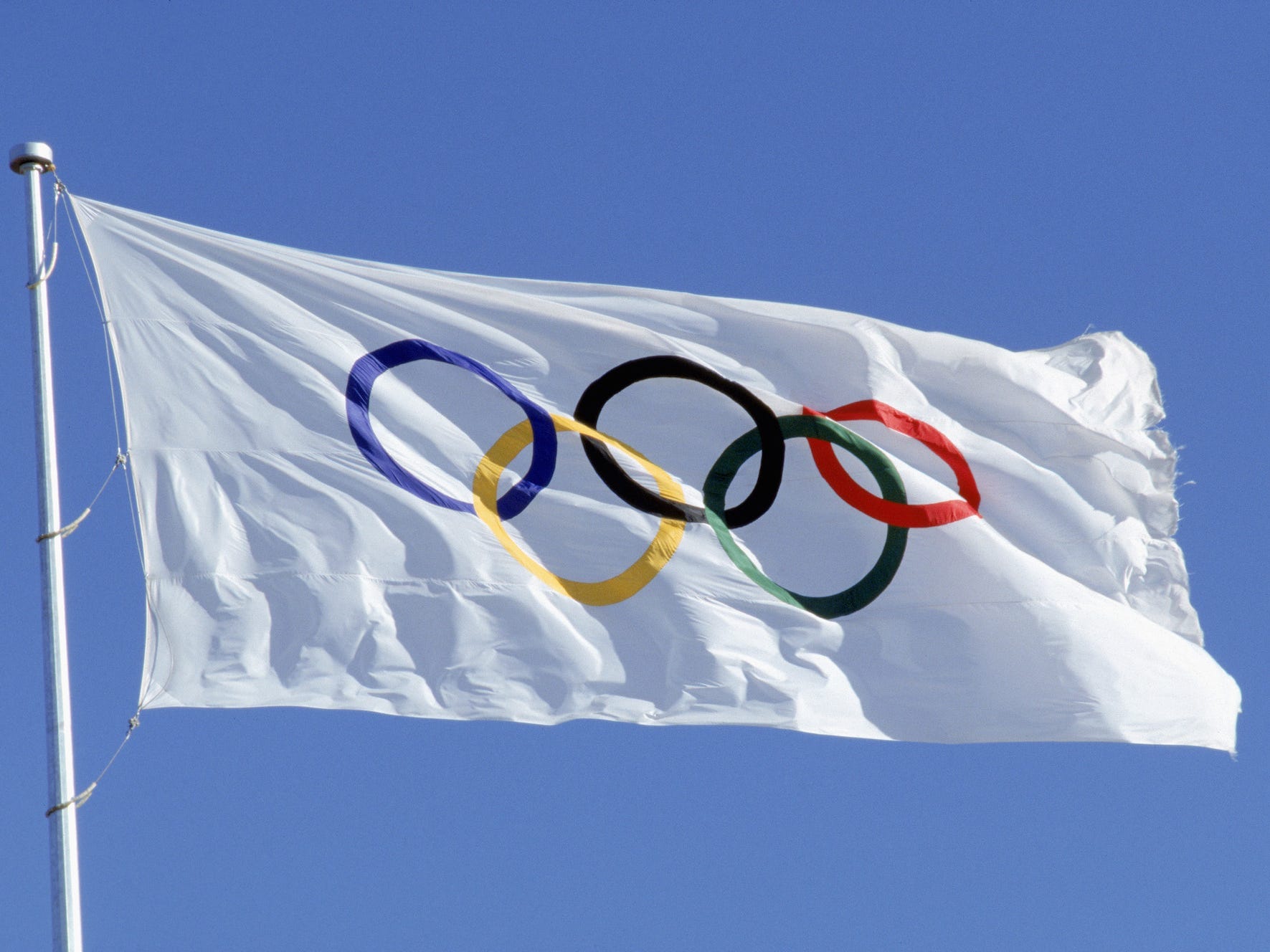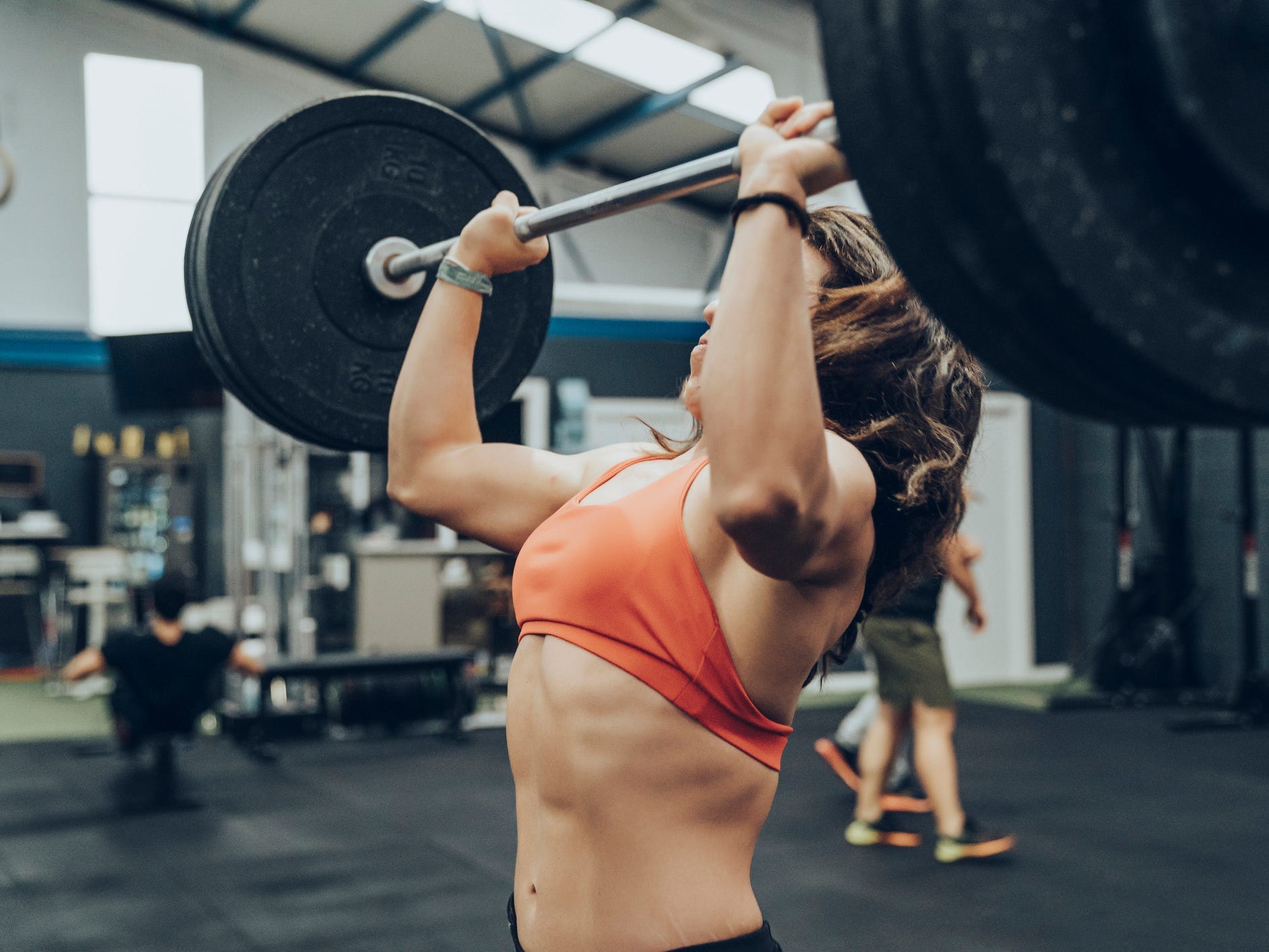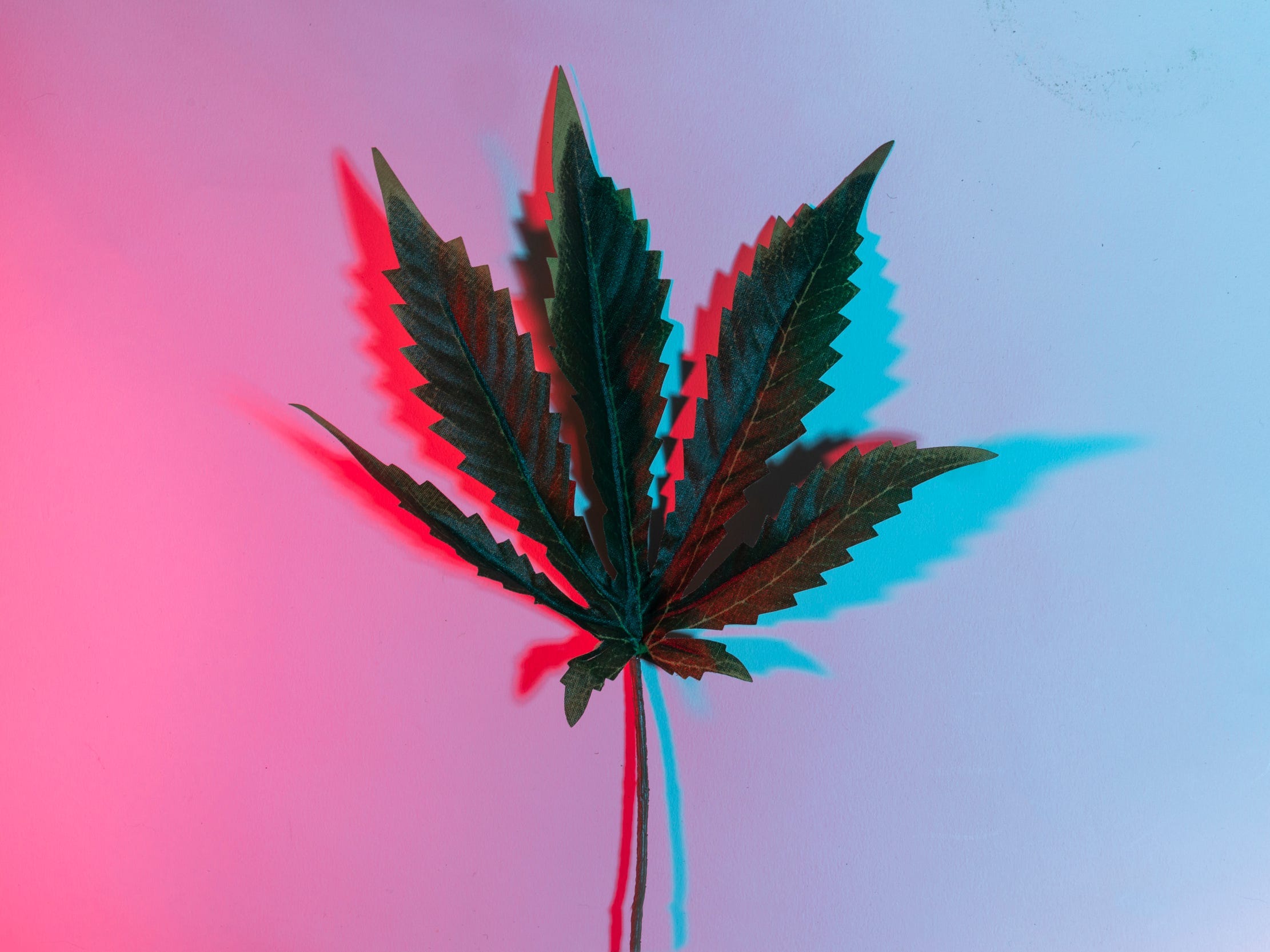

Patrick Smith/Getty Images
- Sprinter Sha'Carri Richardson will miss the Olympics after testing positive for cannabis.
- Concerns about the drug's safety and performance enhancement aren't backed by solid evidence.
- Jokes about cannabis inhibiting performance also stem from an outdated stereotype – the reality is more nuanced.
- Visit Insider's homepage for more stories.
American sprinter Sha'Carri Richardson has been suspended for 30 days and will miss the Olympic 100-meter race after testing positive for cannabis.
Fans have objected to the athlete being penalized for using a substance that is legal in Oregon, where Richardson was racing, and increasingly legal globally.
Amid the outrage, Twitter filled up with jokes about Richardson running at all – let alone at an elite level – while under the influence.
But those jokes missed the mark, too.
Increasingly, evidence suggests the relationship between cannabis and exercise is more nuanced than we ever thought.
That evidence may warrant revisiting the Olympics' rules about cannabis. It should also prompt us to move past the derogatory stereotype of marijuana as the drug of choice for slackers and drop-outs.
The Olympic drug policies are designed to protect "the spirit of sport" and promote fair competition
Cannabis has been banned at the Olympics for two decades, ever since Canadian snowboarder Ross Rebagliati tested positive for THC (the psychoactive component of marijuana that induces a "high") in 1998, and had his gold medal taken away as a result.
The International Olympic Committee opted to ban the drug because it is illegal in most countries across the world, and because it violated "the spirit of sport."
That's one of three factors in drug bans considered by the World Anti-Doping Agency, part of the International Olympic Committee. The second factor is whether it's performance enhancing. The third - the current argument against cannabis - is whether it poses a safety risk by impairing judgment and reflexes.
A substance must meet at least two out of three criteria to be banned.

Banning drugs also serves a marketing purpose by signaling the legitimacy and prestige of the Olympics to its billion-dollar audience, said Dr. Charles Yesalis, professor emeritus of health and sports science at Penn State who has studied performance-enhancing substances for more than three decades.
Policies on substances are influenced as much by perception as by their actual effects, he said: "It's not good to market the Olympics if you have a bunch of 'stoners.'"
But the cannabis ban also illuminates the imprecise nature of supposedly hard and fast rules for Olympians' substance use.
Cannabis isn't a performance-enhancing drug like steroids and other banned substances
If you're like most people, you've probably enjoyed one of the most popular once-banned drugs with your breakfast. Caffeine, and sources of it like coffee, was regulated in Olympic athletes until 2004 because it can boost endurance and reduce fatigue. In high doses, it can raise heart rate, which can be potentially risky during intense exercise, and cause dehydration.
"If you're thinking this sounds murky, yes it is," Yesalis said.
There are three main categories of banned performance enhancing drugs:

Training drugs (anabolic steroids, growth hormones) aid in muscle-building, giving athletes an edge in mass and strength prior to competing.
Stimulants (amphetamine, cocaine) offer an advantage during the competition itself, enhancing blood flow, heart rate, alertness, and reflexes.
Blood doping drugs, substances that increase the production of red blood cells, boost stamina.
But there are also substances that exist in more of a gray area, Yesalis told Insider. These drugs are performance-enabling rather than enhancing. They work by helping an athlete manage pain and inflammation and recover from training and competition.
"They enable you to perform at the level you're capable of, but don't increase that level," he said.
Some of these substances, such as aspirin and other anti-inflammatory pain relievers, are not only legal but widely used.
Other drugs in this category, like opiates and corticosteroids, are banned.
Cannabis, he said, falls into this gray area category. The drug can help relieve pain and promote muscle recovery because it contains a variety of substances called cannabinoids (including CBD, a non-psychoactive component of cannabis that has been exempted from the doping ban since 2019).
"It's primarily a relaxant, I've talked to hundreds of athletes, and that's how they use it, " he said. "You have to ask if it's really performance enhancing, if it's being used to relax you so you can go to the next training session."
The stereotype that cannabis slows you down is outdated

Social media commentators have argued that Richardson's cannabis use makes her elite performance even more impressive, based on the trope of the stoned couch potato.
However, this analysis misses the mark. Cannabis is increasingly gaining traction for a variety of benefits that support athletes, from helping with recovery to relieving anxiety during a workout session.
As the substance becomes more mainstream, it's caught among fitness enthusiasts from weight-lifters to Peloton users as a means of promoting a better workout experience, and sometimes personal-best performances.
Used in excess, it can potentially have side effects like disorientation and rapid heart rate, but it is possible to safely use cannabis during exercise, Insider previously reported.
It works by stimulating dopamine receptors linked to pleasure, allowing users to hyperfocus on the task at hand, and helping ease soreness, discomfort, or anxiety during or after exercise.
Thinking of cannabis as either an unfair advantage or a liability is misguided

Photo by Patrick Smith/Getty Images
While cannabis can be an asset for athletes, there's a lack of rigorous clinical trials to suss out the potential advantage of cannabis.
What anecdotal evidence exists is a weak case for banning it as a performance enhancer, Dr. John Hoberman, a cultural historian of sports and performance enhancement at the University of Texas at Austin, told Insider.
"That isn't very scientific, based on this grab-bag of criteria, it's about as clear as mud," he said.
Prohibiting it based on ethical or social standards is "essentially Victorian" he said. And the evidence of its potential safety risk is similarly limited.
As states and nations continue to deregulate cannabis use, and based on what we now know about its effects, it's worth moving past stereotypes of the drug as either a danger or an unfair advantage for athletes.
"If you want my opinion, their justification for putting marijuana on the list is kind of a mess," Hoberman said.
But it's also outdated to joke about it as a party drug, writing off users as slow, pizza-munching losers when many successful people consume cannabis.
Cannabis is a complicated substance with a nuanced role in fitness, performance, and society. It's high time our cultural perceptions caught up to the latest science.
